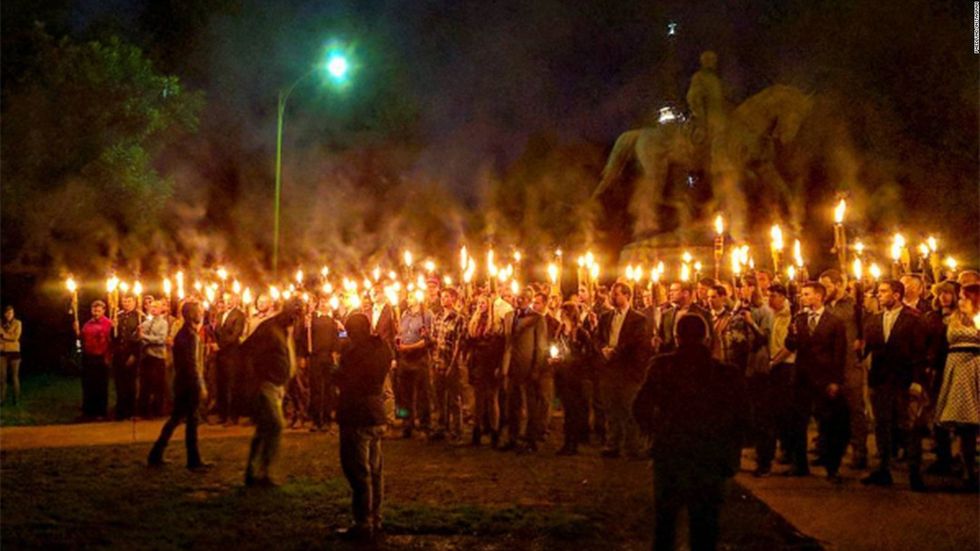Like many others, I found myself shocked when I learned of a gathering of individuals in Charlottesville, Virginia protesting the removal of Confederate statues. Images of these individuals show many holding tiki torches, carrying swastika and Confederate flags, and some claiming to or donning uniforms of the Klan. The ensuing debates and events have been fiery and at times violent.
At the same time, I found myself being introduced to the ways and means of studying law in preparation for a career as an attorney. Luckily, undergrad provided me with a measure of experience in studying law, briefing cases, and understanding the reasons laws in general and specific laws exist. Between that study and lessons of this new chapter, I have learned something key. As law students, we are, in part, pseudo-philosophers, trained to consider and ponder questions legal, moral, and ethical. The most important lesson? That which is legal, that which is moral and that which is ethical are not necessarily the same.
Specifically, I speak in regards to the Charlottesville protesters, dubbed and appearing as "white nationalists," "white supremacists" and neo-Nazis. There are those who make the argument that it is perfectly within these individuals rights to spread their messages and to protest this way. This is not untrue, from a legal and ethical standpoint. So long as they do not make real and credible threats or incite actual violence, these individuals’ speech is, in general, protected. They have every right to engage in this speech, but remember what I said about legality, morality and ethicality not being the same?
Now you might say that not all of these individuals are racist or bigoted, but swastikas, confederate flags, Klan outfits, and chants provide evidence that at the very least most of these individuals are. Regardless of free speech, these views are objectively unethical. Under the moral principles of the United States, the codes by which the law must be carried out, and inherent value society must place equitably on human life, the belief, insistence, and message that a group of individuals is somehow superior or inferior in their value as individuals are unacceptable. In application, this means that criticism of these views and these actions have no reason not to stand, and no one is morally obligated to volunteer a platform or empowerment for these views.
Let me be absolutely clear about reconciling the free speech argument and the knowledge of the immorality of supremacist views. Those who spout these views have every right to do so unless in a way which incites violence, dangerous panic, or constitutes a clear and present threat. However, there is no obligation to volunteer a platform for these messages, and there is no private ethical requirement to host, empower, or accept them.
Of course, this does not mean that the response to these views should be violence. For all the dangers these views have posed in the past and pose today, their existence does not justify violence outside of legitimate self-defense in the face of a real and credible threat. Instead, we must abound with calm, collected compassion toward one another and resist these views in ways which are acceptable morally and legally. We must reach out to our neighbors and community members. We must teach truth and encourage compassion. We must all be better, together.
















